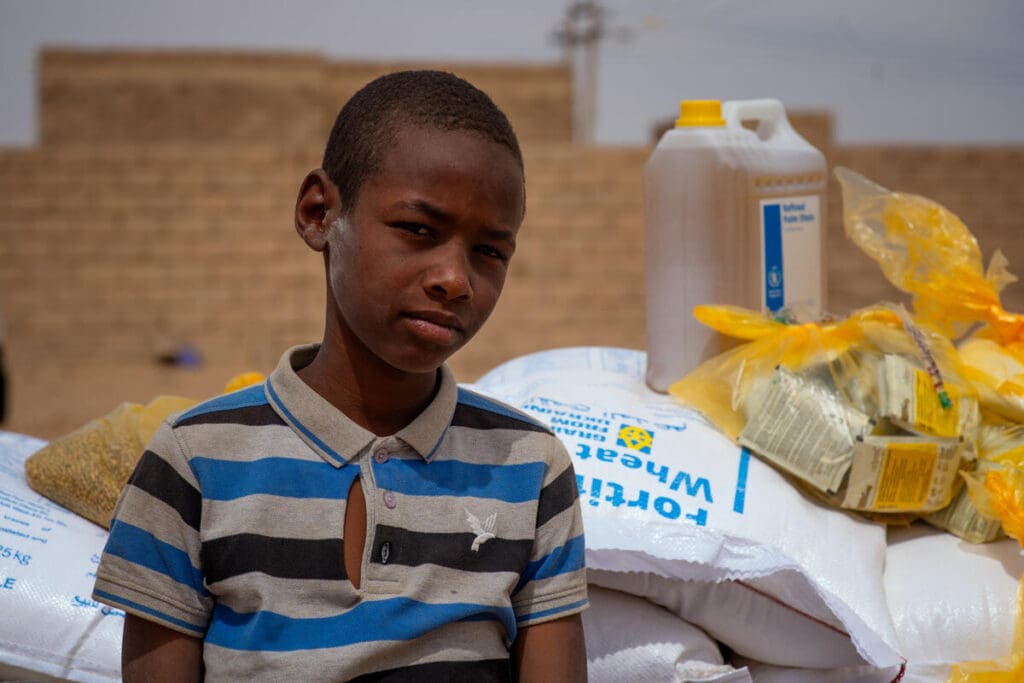Small Window Remains to Avert Disaster in Sudan’s War-Torn Regions, Warns WFP Deputy Executive Director

PORT SUDAN/NAIROBI – The United Nations World Food Programme (WFP) warns that the window to save lives is closing as famine looms in Sudan’s war-torn regions with civilians trapped by intensified fighting in northern Darfur, the rainy season set to start in the coming month making critical transport routes inaccessible, and as the lean season – when food stocks run out and hunger peaks – hits.
“The situation is desperate and quickly deteriorating. The U.N. World Food Programme is currently reaching some 2.5 million people. We have the capacity to scale up and expand our assistance, but for that we need all parties to facilitate access – both across the warring frontlines, as well as cross-border from Chad and South Sudan,” said U.N. World Food Programme Deputy Executive Director Carl Skau following a mission to Sudan this week.
“Only a few weeks remain to stock up food supplies in parts of Darfur and Kordofan before the rainy season starts and many roads become impassable. Farmers also need to safely reach their farmlands to plant ahead of the rains,” he added.
At least 5 million people in Sudan are on the brink of starvation (IPC4). The U.N. World Food Programme experts warn that number may have significantly increased since the last Integrated Phase Classification (IPC) assessment in December 2023. A preliminary U.N. World Food Programme analysis has identified 41 hunger hotspots that are high risk of slipping into famine (IPC5) in the coming month, most of them in access-constrained areas where conflict is raging including in the Darfur and Kordofan Regions and Khartoum.
In Port Sudan, Deputy Executive Director Skau met with a senior member of the Sudan Sovereignty Council, the Sudan Federal Humanitarian Aid Commissioner and Sudan’s Minister of Agriculture. They recognized the severity of the situation and committed to facilitate cross-line deliveries, more flexibility in using the Tine border crossing from Chad into North Darfur, and to consider allowing U.N. World Food Programme convoys to cross via the currently closed Adre border crossing. As progress is currently being made with SPLM-N (Al-Hilu) on humanitarian access, facilitation of access to the Kordofan Region, including through a cross-border route from South Sudan, is also anticipated.
In addition, commitments were given that the U.N. World Food Programme-managed U.N. Humanitarian Air Service could open an airbridge to Kassala from Port Sudan, and that the U.N. World Food Programme would be able to bring additional ITC equipment to ensure connectivity for the humanitarian system in remote field locations.
“These indications are welcome steps to improve the humanitarian operating environment in Sudan. Commitments made by all parties to facilitate humanitarian access urgently need to be translated into realities on the ground,” said the U.N. World Food Programme Deputy Executive Director.
Escalating fighting in North Darfur’s capital El Fasher in recent days has resulted in large numbers of civilian deaths and injuries, damaged the only operational hospital in the state, and hampered humanitarian access to the city and beyond.
“I urge the warring parties to uphold their obligations under international law to protect civilians and to stop the fighting,” he added.
The U.N. World Food Programme has repeatedly been warning that Sudan could become the world’s worst hunger crisis as the conflict enters its second year. The window to prevent famine is rapidly closing without immediate action.
“The situation in Sudan has not been given the attention it deserves. That must change now. Concerted diplomatic efforts and more resources are urgently needed to protect civilians and to strengthen the humanitarian response. The U.N. World Food Programme is committed and ready to do its part,” the U.N. World Food Programme Deputy Executive Director said.
# # #
The United Nations World Food Programme is the 2020 Nobel Peace Prize Laureate and the world’s leading humanitarian organization, saving lives in emergencies and using food assistance to build a pathway to peace, stability and prosperity for people recovering from conflict, disasters and the impact of climate change.
Follow us on Twitter @wfp_media, @WFP_Sudan and @WFP_Africa




